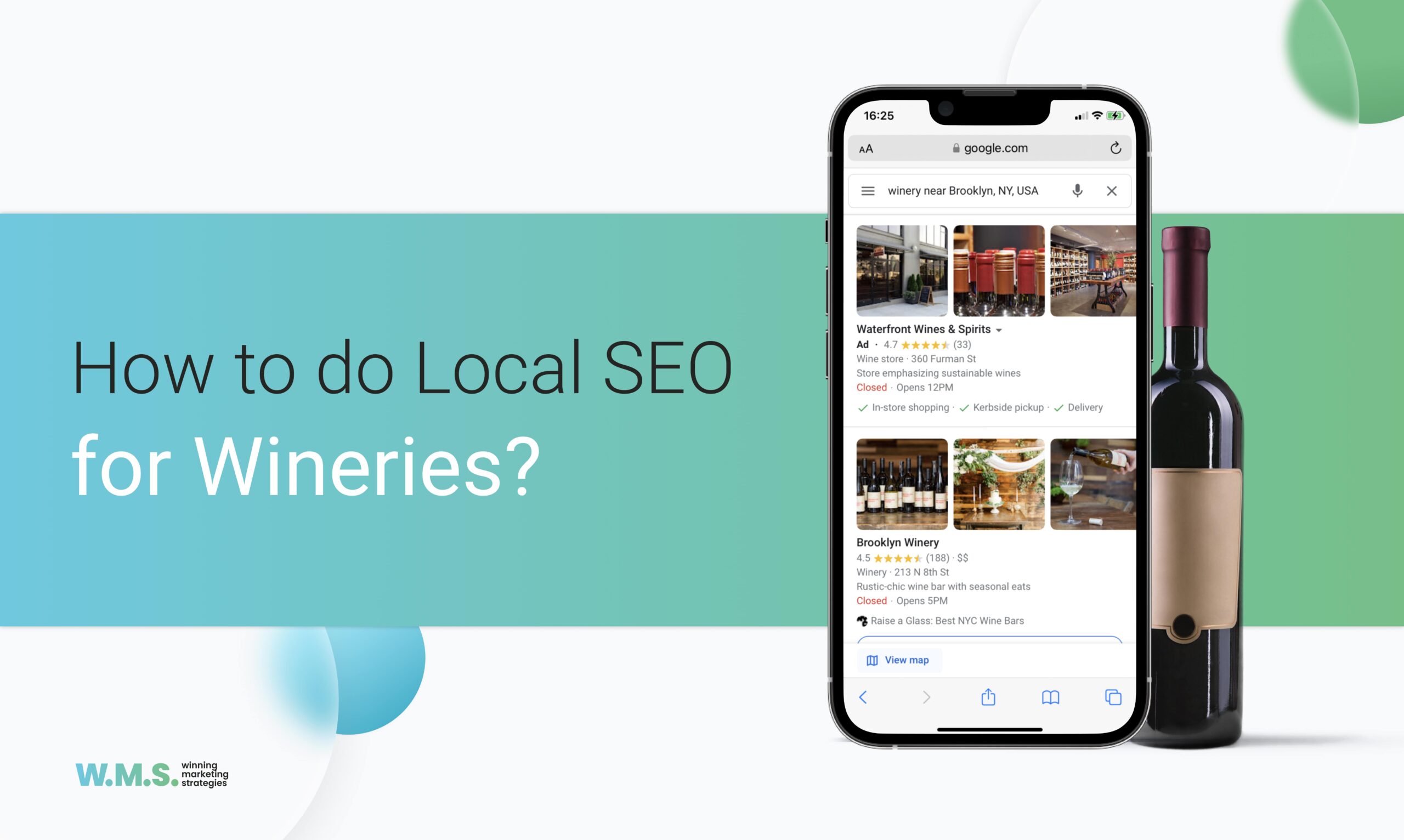Most wineries are not extensively marketed online. This puts them at a disadvantage when trying to compete with more prominent wine brands that have invested heavily in local SEO. However, there are a few tips and techniques that can help wineries achieve better local SEO results. Here is a quick glance at the powerful SEO for wineries tactics you might not know before.
What is the local SEO for wineries?
Many people need to realize that local SEO is essential for wineries. Optimizing your website for the region in which your winery resides can ensure that customers looking for your product or service can easily find you. In addition to increasing traffic and leads, localized search engine optimization can also help you secure higher rankings in search results pages (SERPs), making it easier for potential customers to find you.
There are a few things you need to take into account when localizing your website for wineries. You will need to consider the city or town where your winery is located and the surrounding areas. Additionally, you will want to ensure that all of your website’s content is relevant to the region in which it is located.
How long does local wine shop SEO take to work?
Local wine shops have been gaining in popularity since their inception. They provide a unique shopping experience that many people enjoy. On the other hand, local wine shops face competition from big box stores and online retailers. To compete, local wine shops must invest in SEO.
SEO for a local wine shop can take anywhere from a few weeks to a few months, depending on the optimization level and the amount of traffic the shop receives. Local wine shops should start by creating an SEO strategy and then implementing it. They should also use search engine keyword research to determine which keywords to target and what type of Google Ads for wine shop to place.
More about WMS clients’ results can be found at Case Study: Shop Wine Society page.
!
5 best local SEO tips for wineries:
Are you looking to boost your winery’s online visibility and reach potential customers? If so, you’ll want to follow these effective SEO for wineries guidelines.
- Keep your website content fresh. Regularly updating your website with new information, graphics, and photos will help attract attention from search engines and keep visitors coming back.
- Optimize your website for key search engines. Making sure your website is properly optimized for popular search engines like Google, Yahoo!, and Bing can help increase traffic and create more exposure for your winery.
- Develop positive relationships with local bloggers and journalists. Joining industry associations, sponsoring local events, and giving away free wine are all great ways to build relationships with influential bloggers and journalists who might write about your winery in a positive light.
- Establish yourself as an authority in your niche market. If you focus on producing high-quality wines from specific grape types, make sure you have a website that showcases that expertise. Include helpful articles, videos, and photographs that detail the unique flavor profiles of various wine varietals.
- Use keyword density metrics to determine the number of keywords that should be included in your titles and descriptions. More keywords can cause SERPs to display all of your content at the top, diluting the impact of your wineries SEO efforts. Aim for 2-3% keyword density in each title and description element.
How much do winery SEO services cost?
Many business owners are wondering how much winery SEO services cost. According to the Google Trends report, a search for “winery SEO” has increased by 166% over the past five years. So, if you aim to take your winery’s online presence to the next level, SEO services will likely be a key part of your strategy. But how much do these services typically cost? And is there a specific type of service that you should prioritize?
SEO services can range in price from around $1,000 to several thousand dollars per month. Nevertheless, depending on the size and scope of your project, some providers may charge more for specific services (like keyword research) than others (like website design). Apart from that, many providers offer flexible payment plans to fit your budget in line with your goals.
What are the most valuable winery keywords for local SEO?
Keyword research is an integral part of any SEO campaign, and wineries are no exception. Thankfully, there are a variety of valuable keywords that can be used to help improve your site’s search engine ranking.
In fact, many wineries consider keywords such as “wine,” “winery,” and “vineyard” to be some of their most important keywords. However, not all of these words will work well for your site – it’s essential to focus on those that have the potential to generate the most traffic.
There are many valuable winery keywords for local SEO. Some of the most useful include:
- Winery: This is obviously the most important keyword for a winery, as it’s the main focus of search engines. Avoid using generic terms like “winery” or “wine,” and use phrases specific to your business. For example, use “Monterey County Wineries” as a keyword instead of just “winery.”
- Producer: Another important keyword for a winery is the producer. This term refers to the person or company responsible for producing the wine. Include this term in your website titles, meta descriptions, and other marketing materials.
Other most valuable keywords for local SEO are “wine,” and “winemaker.” These keywords will help you rank higher in search engine results pages (SERPs) for related content and potential customers.
It’s necessary to research your target market and focus on keywords that are relevant to them. For example, suppose you’re a winery targeting wine lovers in the U.S. In that case, you might want to focus on terms like “California wine” or “Oklahoma wine” instead of generic terms like “winery.”
Use a variety of keyword strategies to increase your chances of ranking high in search engine results pages (SERPs). For example, adding long-tail keywords throughout your website’s content, using meta titles and descriptions, and submitting your website to relevant search engines can all help improve your rankings.




